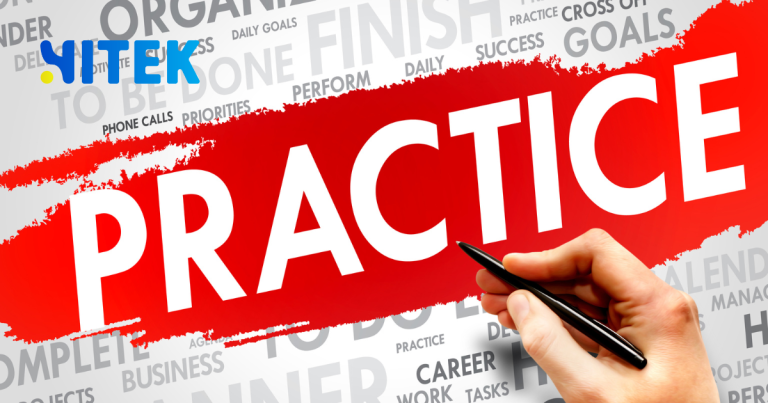Software development is the backbone of modern technology, driving everything from mobile apps to enterprise systems. But behind every successful software project lies a well-chosen methodology—a structured approach that guides teams from concept to deployment. Understanding these methodologies is essential for businesses and developers alike in Australia, where the tech industry is booming. Whether you’re a startup in Sydney or an established firm in Melbourne, choosing the correct methodology can make or break your project.
In this article, we’ll explore the most popular software development methodologies, their strengths, and how they can be applied to meet the unique needs of Australian businesses. By the end, you’ll clearly understand which approach might work best for your next project.
Contents
ToggleWhy Software Development Methodologies Matter
Before we dive into the specifics, let’s address the elephant in the room: Why do methodologies matter? Simply put, they provide a roadmap for managing complex projects. Without a structured approach, teams risk falling into chaos—missed deadlines, blown budgets, and subpar results. Methodologies bring order to the process, ensuring everyone is on the same page and working toward a common goal.
Adopting the correct methodology can be a game-changer for Australian businesses, where fierce competition and innovation is key. It’s not just about delivering software; it’s about providing value efficiently and effectively.
The Most Popular Software Development Methodologies
Here’s a breakdown of the most widely used methodologies in software development, each with its unique approach and benefits.
1. Agile Methodology
Agile is arguably the most popular methodology in software development today. It emphasizes flexibility, collaboration, and customer feedback. Instead of following a rigid plan, Agile teams work in short cycles called “sprints,” delivering incremental improvements to the software.
- Best For: Projects with evolving requirements or where customer feedback is critical.
- Popular in Australia: Many Australian tech companies like Atlassian have embraced Agile to stay competitive in a fast-paced market.
2. Waterfall Methodology
The Waterfall model is a linear, step-by-step approach in which each phase of the project must be completed before proceeding to the next. It’s highly structured and works well for projects with clear, unchanging requirements.
- Best For: Projects with well-defined goals and minimal expected changes.
- Example: Government projects in Australia, where strict compliance and documentation are required, often use Waterfall.
3. Scrum
Scrum is a subset of Agile and focuses on breaking down projects into small, manageable tasks. Teams hold regular “stand-up” meetings to track progress and address roadblocks.
- Best For: Teams that thrive on collaboration must deliver results quickly.
- Australian Insight: Scrum is widely used in Australian startups, where rapid iteration is key to staying ahead.
4. Kanban
Kanban is all about visualising work. Tasks are represented on a board, moving from “To Do” to “In Progress” to “Done.” It’s a great way to manage workflow and identify bottlenecks.
- Best For: Teams looking to improve efficiency and reduce waste.
- Local Example: Many Australian software agencies use Kanban to manage multiple client projects simultaneously.
5. DevOps
DevOps isn’t just a methodology; it’s a culture. It bridges the gap between development and operations teams, emphasizing continuous integration and delivery.
- Best For: Organisations aiming for faster deployment cycles and improved collaboration.
- Australian Trend: Companies like REA Group have adopted DevOps to streamline development processes.
6. Lean Development
Inspired by lean manufacturing principles, Lean Development focuses on delivering value while minimising waste. It’s all about doing more with less.
- Best For: Startups and small businesses with limited resources.
- Australian Context: Lean is particularly popular among Australian tech startups looking to maximise efficiency.
Comparing Software Development Methodologies
To help you choose the correct methodology, here’s a quick comparison:
| Methodology | Flexibility | Speed | Best Use Case | Popular in Australia |
|---|---|---|---|---|
| Agile | High | Fast | Evolving projects | Tech startups, Atlassian |
| Waterfall | Low | Slow | Fixed requirements | Government projects |
| Scrum | High | Fast | Collaborative teams | Startups, SMEs |
| Kanban | Medium | Medium | Workflow management | Software agencies |
| DevOps | High | Fast | Continuous delivery | Large enterprises |
| Lean | Medium | Fast | Resource efficiency | Startups |
How to Choose the Right Methodology for Your Australian Business
Selecting the proper methodology depends on several factors, including your project’s scope, team size, and industry. Here are a few tips to help you decide:
- Understand Your Requirements: If your project has clear, unchanging goals, a Waterfall might be the best choice. For more dynamic projects, Agile or Scrum could be a better fit.
- Consider Your Team’s Expertise: Some methodologies, like Scrum, require experienced teams that can self-organise. Others, like Kanban, are easier for beginners to implement.
- Evaluate Your Timeline: Agile or DevOps can help you deliver faster if speed is a priority. For longer-term projects, Lean or Waterfall might be more appropriate.
- Think About Your Industry: Certain industries, like finance or government, may have specific regulatory requirements influencing your choice.
The Future of Software Development in Australia
As Australia’s tech industry continues to grow, so will the demand for innovative development methodologies. Emerging trends like AI-driven development and low-code platforms are already reshaping the landscape, offering new ways to build software faster and more efficiently.
For Australian businesses, staying ahead means adopting the right methodologies and being open to new approaches. Whether you’re a developer in Brisbane or a business owner in Perth, the key to success lies in choosing a methodology that aligns with your goals and values.
Final Thoughts
Software development methodologies are more than just frameworks—they’re tools that can help you achieve your vision. By understanding the strengths and weaknesses of each approach, you can make informed decisions that drive your projects forward.
So, what’s your next move? Will you embrace the flexibility of Agile, the structure of Waterfall, or the efficiency of Lean? Whatever you choose, remember that the correct methodology can transform your project from good to great.
Ready to take your software development to the next level? Contact a local expert today to determine the proper methodology for your business. Or, if you’re a developer, consider upskilling in Agile or DevOps to stay competitive in Australia’s thriving tech industry.









